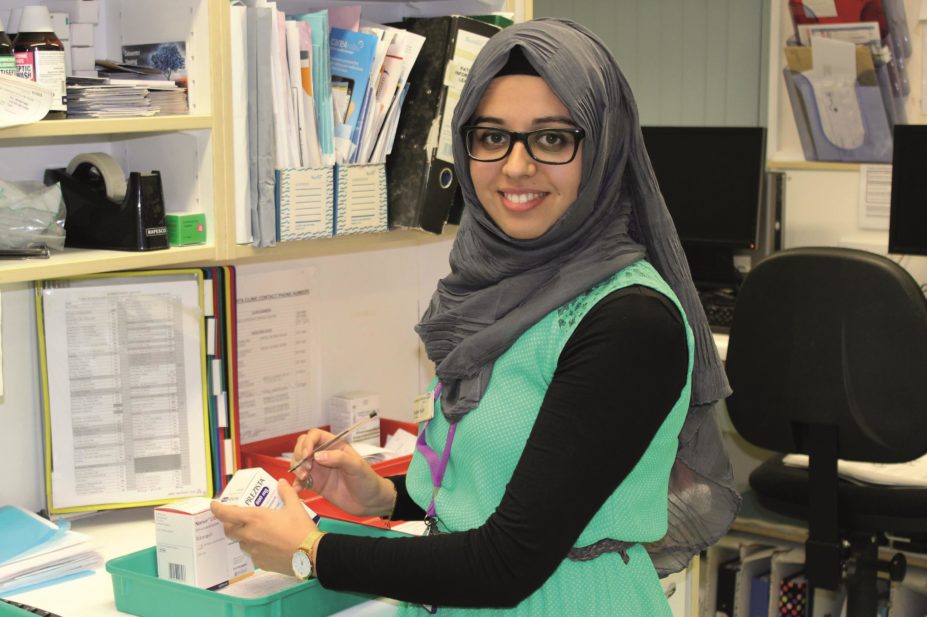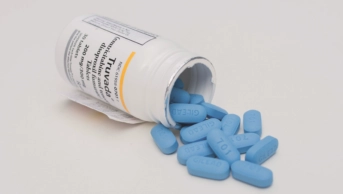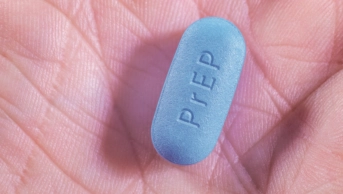
Ghadeer Muqbill
HIV pharmacist Ghadeer Muqbill leads a pharmacy service at St George’s University Hospital NHS Foundation Trust in south London for patients with HIV and other infectious diseases.
What is your role and how did you get there?
Although I had a lot of experience working in community pharmacy during university, I decided to pursue a career in hospital pharmacy. I completed my preregistration training at West Middlesex University Hospital — an acute district hospital in west London.
Soon after completing my training, I was adamant I wanted to continue working at a teaching hospital and so I moved to St Mary’s Hospital in Paddington, part of Imperial College Healthcare. There I successfully completed a clinical diploma in general pharmacy practice, which gave me the skills I needed to move to a senior rotational pharmacist position at St George’s University Hospital NHS Foundation Trust — one of the UK’s largest teaching hospitals. This led to my current role as principal lead in HIV and infectious disease.
What responsibilities do you have as part of your role?
My prime responsibility is to lead a pharmacy service for both patients and healthcare professionals within HIV, infectious disease and genitourinary medicine. The clinical aspect of my role includes ensuring prescriptions for antiretroviral medicines are safe and clinically appropriate for patients in line with guidelines and evidence. I go on specialist ward rounds on the infectious disease ward to review various sick patients and I am also part of the antiretroviral multidisciplinary meeting where we discuss complex patients. The peripheral duties that govern the running of this service are endless, but generally include medicines management, financial drug reporting, staff management and training.
Looking after paediatric HIV patients involves providing treatment advice to a cohort of 100 children and adolescents. In addition to this, I am involved in making recommendations for prevention of mother-to-child transmission, by providing appropriate antiretroviral therapy to mothers and infants during pregnancy, labour and the postnatal period.
Why did you decide to specialise in HIV and infectious diseases?
What attracted me most to specialising in HIV and infectious diseases is the dynamic nature of the specialty and the prospect of novel therapeutics. Patients are diverse and their ability to cope with different challenges in their lives is inspirational. Many have overcome extreme adversity in their health and personal lives. As an integrated and respected member of the multidisciplinary team, I find that the contribution of the HIV pharmacist is invaluable to the management of patient care within HIV and infectious diseases.
In my role, I have the autonomy to make decisions about patients’ treatments to the same extent as other members of the multidisciplinary team, for example, I might recommend changes to treatment secondary to toxicity or to manage drug interactions.
What do you find interesting and rewarding about your role?
I find myself learning something new every day. This includes understanding HIV resistance and how the virus rapidly evolves, managing virological failures (when antiretroviral therapy fails to suppress and sustain a person’s viral load to less than 200 copies/ml), and constructing novel antiretroviral therapy. I also absorb new knowledge from research trials or named patient programmes.
Being a member of the HIV Pharmacy Association provides networking opportunities and regular attendance at academic meetings, workshops, and conferences helps keep me up to date.
I make a difference every day, especially during adherence clinics. Patients are seen in a pharmacy-led adherence clinic prior starting or switching treatment, post-ward discharge, or if they have any adherence issues. HIV treatment is lifelong and adhering to therapy is essential for sustaining viral suppression, and so these clinics gives you the opportunity to ensure any barriers or concerns are overcome and that patients make the most effective use of their medicines.
Why do you think it is important for pharmacists in particular to get involved in the care of patients with HIV?
HIV is a disease for which treatment is entirely drug-based. Pharmacists play a vital role in educating patients about lifelong treatment and advising healthcare professionals on how to manage potential drug interactions. Pharmacists across primary and secondary care can help increase awareness of HIV prevention among patients and healthcare profession.
What are your career goals for the future?
My next step is to start the non-medical prescribing course. I intend to use this qualification within infectious diseases to optimise patient care. My long-term goal for the future is to work abroad to share my expert skills and knowledge in less fortunate areas.


